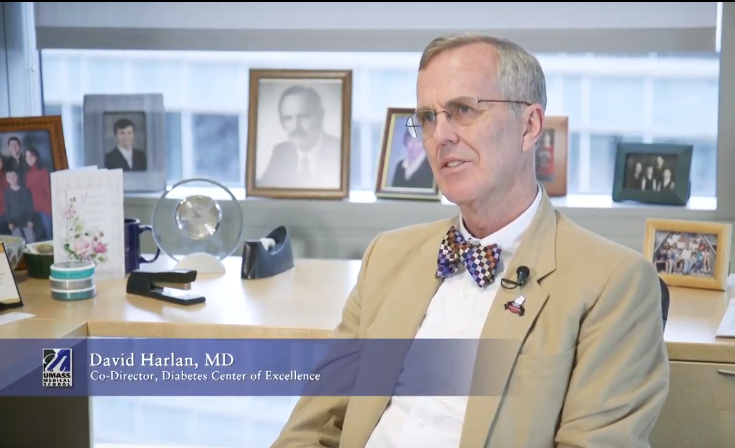Research and Strategies to Prevent & Cure Type 1 Diabetes
Our ultimate goal is a cure for the millions of people living with type 1 diabetes (T1D). First, we must fundamentally understand the root causes of the disease. Diabetes was cured in mice in the 1970s; however, rodent cures do not translate to humans.
Scientific Challenges to Type 1 Diabetes Research
Studying the autoimmunity of the insulin-producing beta cells in the pancreas is extremely difficult. Biopsies of the human pancreas are dangerous, and rodent models do not replicate human T1D.
Our Scientists and Collaborators Have...
Developed novel "humanized" models to study human cells & tissues
UMass Chan Diabetes Center of Excellence (DCOE) co-director Dale Greiner, PhD, developed and improved “humanized” mice in collaboration with The Jackson Laboratory. These "living test tubes" allow our scientists to study human cells & tissue in a human immune setting. Replicating the human disease process allows our scientists to investigate how and where the autoimmune attack occurs.
Perfected techniques to remove human pancreatic tissue from deceased donors and isolated beta cells & immune cells
Our team has developed a novel tool to extract islets from slices of human pancreas obtained from deceased donors who generously donated organs to science. We study and compare cell types from people of varied demographics and stages of diabetes.
Isolated & characterized immune cells that attack insulin-producing beta cells
Our methods of isolating and studying individual human islets provide snapshots of an individual's cells during autoimmunity at various stages of the disease process. Examining a diseased human islet, with immune cells still intact, allows our scientists to investigate the interaction between those human immune cells & beta cells. Identifying immune cell targets and beta cell response will show us how beta cells are dying, helping to understand the autoimmune attack.
Located beta cells that express important immune pathway gene products
The Harlan and Kent labs definitively put to rest a three-decade-old debate about whether beta cells express human leukocyte antigen class II.
Developing a stem cell-derived islet replacement therapy
Scientists from leading institutions throughout New England, including UMass Chan DCOE principal investigators, Drs. David Harlan, Dale Greiner, Michael Brehm, Sally Kent, René Maehr, Jennifer Wang, and Accalia Fu are collaborating to genetically modify stem cell-derived islets and camouflage them from autoimmune attacks. The plan is to eliminate the need for immunosuppressant drugs after implanting those insulin-producing beta-like cells.
Collaborating with The Jackson Laboratory, Harvard Medical School,Beth Israel Deaconess Medical Center & University of Toronto, scientists at the UMass Chan DCOE are creating and transplanting stem cell-derived beta-like cells into our novel humanized models of T1D to recreate and observe the disease in a way that's never been done before. The ultimate goal is a therapy that can be scaled into clinical trials to cure diabetes.


